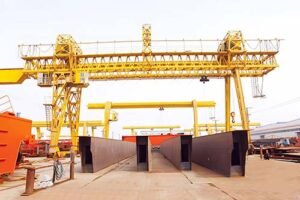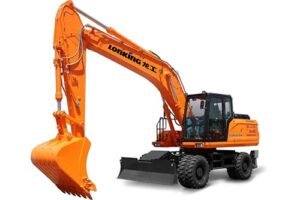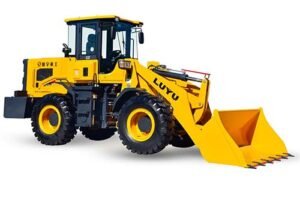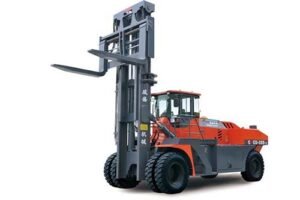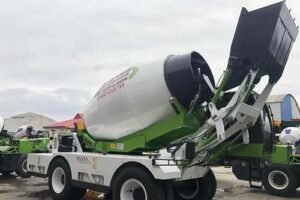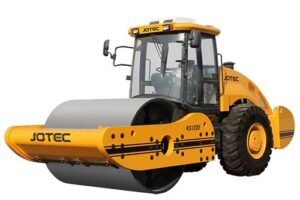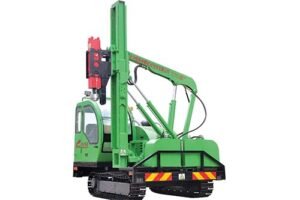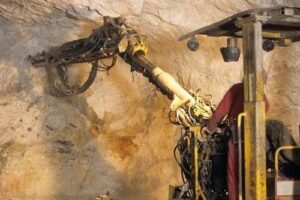Engineering machinery is pivotal in modern construction and industrial development. As the industry evolves, two major trends—electrification and intelligentization—are driving innovation, with batteries playing a central role in powering these advancements. Sodium-ion batteries are emerging as a game-changing solution, offering a unique combination of safety, cost-effectiveness, and performance tailored to the demanding requirements of engineering machinery.
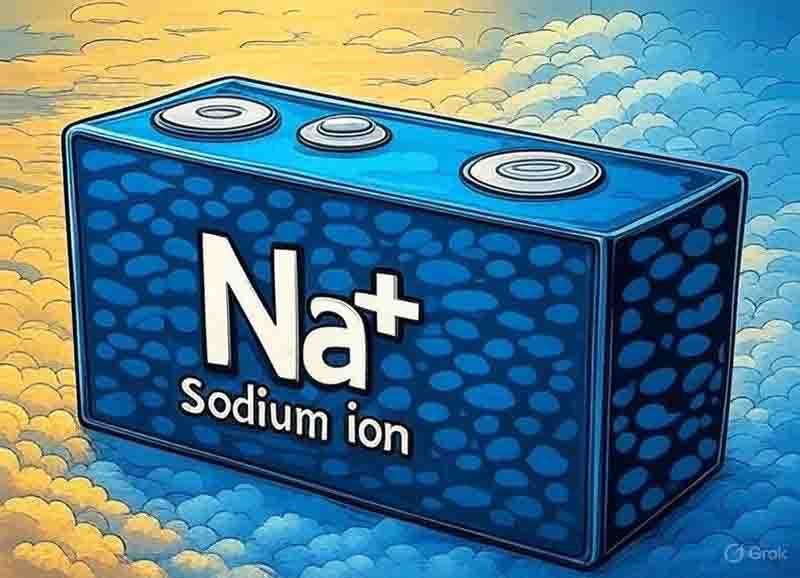
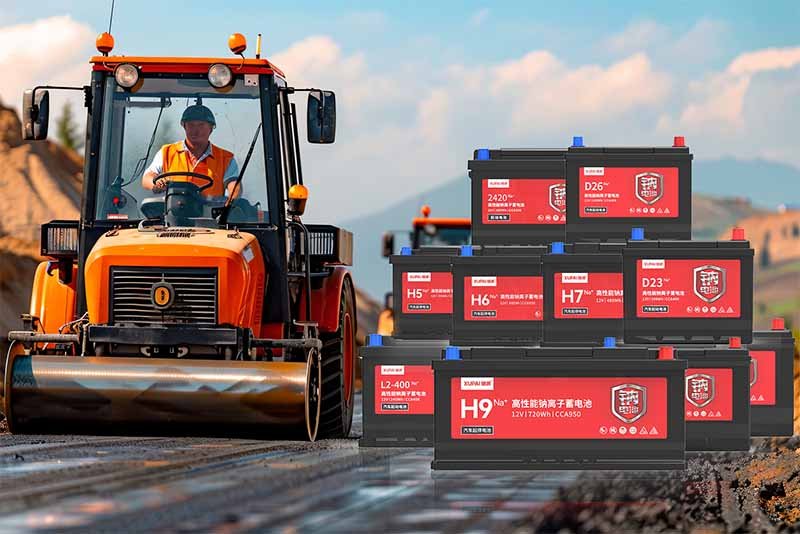
The engineering machinery sector is undergoing significant transformation, propelled by technological advancements and market demands:
Stricter environmental policies and advancements in battery technology are accelerating the shift from traditional fuel-powered machinery to electric alternatives. Electric machinery offers zero emissions, reduced noise, and lower operational costs, making it increasingly attractive for construction and industrial applications.
The integration of technologies such as 5G, industrial internet, and artificial intelligence is transforming machinery into smart, collaborative systems. Features like autonomous driving, remote monitoring, and intelligent scheduling enhance safety, efficiency, and precision in operations.
These trends rely heavily on advanced battery systems to power machinery and support sophisticated functionalities, making the choice of battery technology critical.
Batteries are the backbone of modern engineering machinery, enabling both power delivery and advanced features. To meet the industry's rigorous demands, batteries must fulfill several key requirements
Sodium-ion batteries are a promising alternative to traditional battery technologies, leveraging abundant sodium resources to deliver cost-effective and sustainable energy solutions.
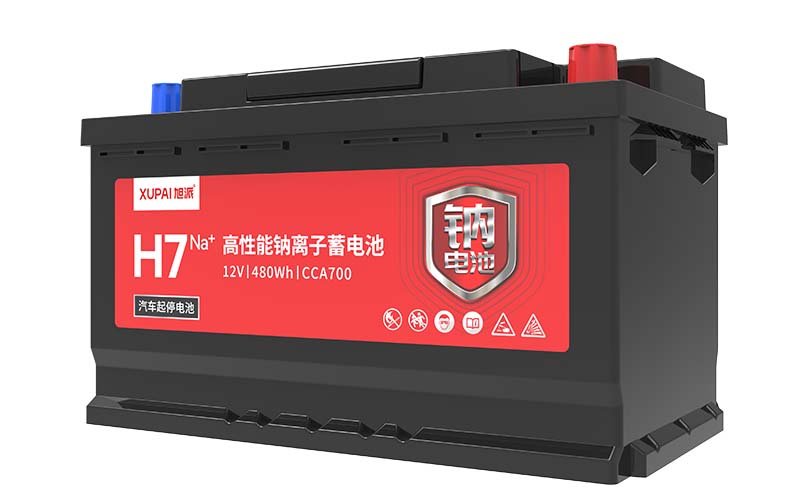
(1) Cathode Material: Prussian blue analogues, layered oxides (O3 or P2-type NaMO₂ (M=Ni, Mn, Fe, Cu)), polyanionic compounds (phosphate-based)
(2) Anode Material: Hard carbon, soft carbon, silicon-carbon composites and others
(3) Separator: Same as lithium-ion batteries (polyethylene PE, polypropylene PP)
(4) Electrolyte: Similar to lithium-ion batteries (LiPF), sodium salt (NaPF) dissolved in organic solvents (ethylene carbonate EC, propylene carbonate PC)
(5) Current Collector: Composite aluminum foil for both positive and negative electrodes (6.5-8um)
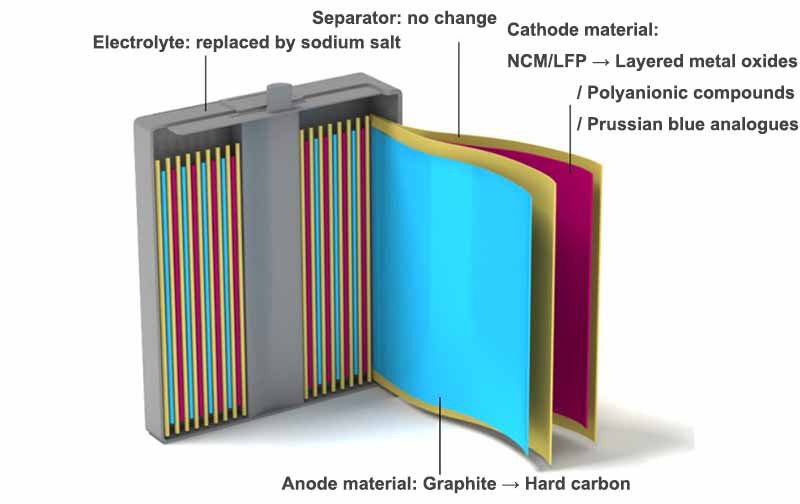
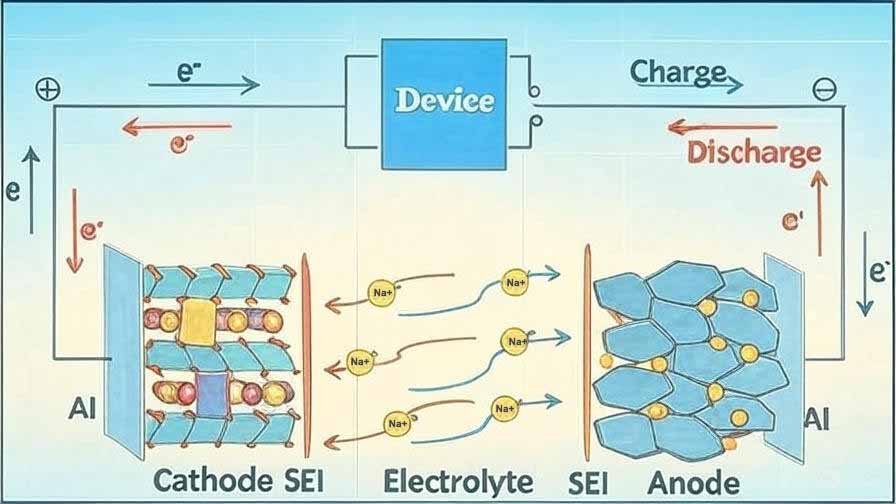
Sodium-ion batteries are rechargeable batteries that store and release energy through the movement of sodium ions between positive and negative electrodes. They operate similarly to lithium-ion batteries but use sodium-based materials, which are more abundant and less expensive.
Sodium ions move from the positive electrode (e.g., Prussian blue analogs, layered oxides, or polyanionic compounds) through the electrolyte to the negative electrode (e.g., hard carbon or silicon-carbon).
Sodium ions return to the positive electrode, generating an electric current to power machinery.
Sodium-ion batteries align perfectly with the demands of engineering machinery, offering a robust solution for industrial applications where safety, durability, and cost are paramount. Here’s how they meet and exceed industry requirements:
While sodium-ion batteries have lower energy density (100-150 Wh/kg) compared to lithium-ion batteries (120-260 Wh/kg), they offer a significant improvement over lead-acid batteries (30-50 Wh/kg). For engineering machinery, where weight and volume are often less critical than in electric vehicles, this trade-off is acceptable, especially given their superior safety, cost, and temperature performance.
Battery Type | Energy Density (Wh/kg) | Typical Applications |
|---|---|---|
Sodium-Ion | 100-150 (up to 200 in future) | Engineering machinery, energy storage |
Lithium-Ion | 120-260 | Electric vehicles, portable electronics |
Lead-Acid | 30-50 | Traditional machinery, automotive |

Discharge Capacity at High/Low Temperatures: Delivers 100% capacity at 60°C and no less than 83% capacity at low temperature of -40°C.


Sodium-ion batteries are particularly suitable for engineering machinery applications such as material handling equipment, construction machinery, and industrial vehicles. Their ability to perform in extreme temperatures and harsh conditions, combined with their safety and cost advantages, makes them ideal for
